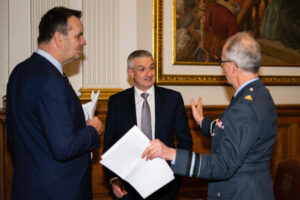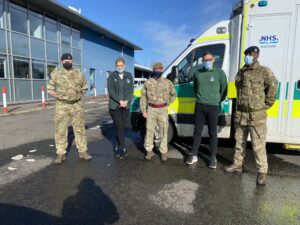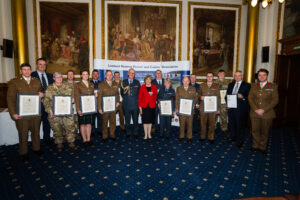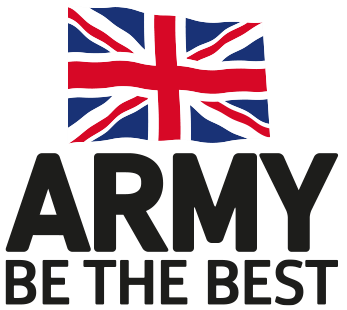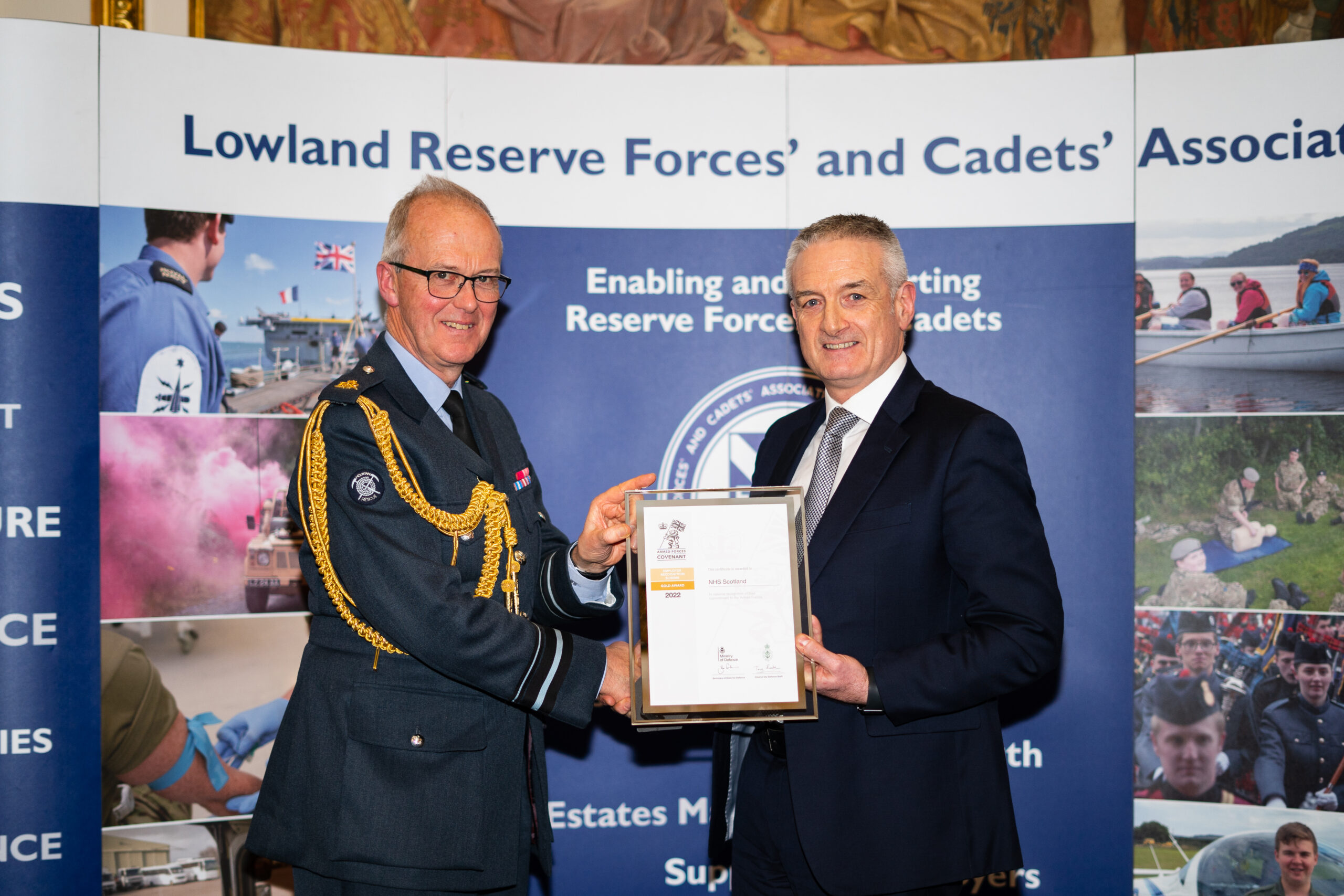
In 2014, NHS Scotland became the first organisation in Scotland to receive the Gold Employer Recognition Scheme (ERS) Award. After an initial revalidation in 2017, NHS Scotland’s Gold ERS Award was revalidated for a second time at Edinburgh City Chambers on Tuesday 6 December 2022. This landmark occasion is testament to the organisation’s ongoing commitment and support to Defence people in Scotland.
As Scotland’s largest employer, NHS Scotland is regularly held up as an exemplar for their support of Reservist employees. The organisation’s superb dedication to seeing Defence people flourish is demonstrated in its policies on mobilisation, training, support and advocacy. NHS Scotland recognises the huge value Defence people bring to the workforce and are also proud of the contribution their highly skilled employees make to Defence.
This symbiotic relationship is one John Burns, NHS Scotland’s Chief Operating Officer, is deeply proud of and keen to nurture. Lowland RFCA caught up with John to discuss this precious partnership between NHS Scotland and Defence.
Why is NHS Scotland’s relationship with Defence so meaningful?
The relationship is one built on mutual benefit and opportunity. By supporting as we do, we both create a chance for our staff to learn and develop, but also to bring those skills back into their role in the NHS. Reservists gain fabulous training and skills from Defence, a large majority of which can be brought back into the workplace.
Not only do we see Reservists bring in leadership and organisation skills, but we also notice their ability to be great team players and to support team-building. Those transferable skills enhance our workforce, strengthen our teams, and ultimately benefit the healthcare setting they are working in.
Why do NHS employees make great Reservists?
The military undoubtedly benefits from having Reservists who are primarily employed by the NHS. Like the Armed Forces, we train and develop our staff to be highly skilled, competent professionals. With an abundance of world class clinical skills, Defence gains excellent individuals who bring outstanding subject matter knowledge and are committed public servants.
Over the last few years both Reservists and Regular members of the Armed Forces supported NHS Scotland during the COVID-19 pandemic on what was called Operation RESCRIPT. Tell us a little about this experience?
Over the last two and half years, particularly during the height of the pandemic, the NHS saw members of the Armed Forces assist with our very successful vaccine roll-out, driving ambulances, and hospital support. The response to having Reservists working alongside our NHS teams was incredibly well-received. The camaraderie was evident, with members of our workforce and the military united in their joint purpose of supporting the people of Scotland. Having spoken to colleagues from across the NHS in Scotland who worked closely with military personnel, they really valued the contribution they made. The whole experience strengthened our special relationship, if indeed it needed to be strengthened, and spurs us on to continue building it.
What benefits can be gained by having your Reservist employees mobilised for Operations?
When members of staff are mobilised, particularly if their mobilisation sees them in highly pressurised environments, they bring a huge amount of learning back with them. Not only does this development benefit the Reservist, but it also benefits the healthcare team they return to. Reservists can share their experiences to support and develop their NHS teams, to help them deal with the many different and often acute pressures they face.
Given that your bread and butter is health, do you see health benefits of being involved in the Reserve Forces or Cadet organisations?
Reserve Forces and the Cadet organisations are certainly contributing to health and wellbeing, instilling physical fitness and developing personal wellbeing amongst their people. Physical and mental fitness is essential to us all, so it’s great to see it being championed by those in the Reserves and Cadets.
Would you encourage employees within the NHS in Scotland to consider becoming a Reservist or a Cadet Force Adult Volunteer?
Yes, I would certainly encourage our staff to volunteer with either the Cadet organisations or with the Reserve Forces. I am so impressed by the Reservists and CFAVs I have met, all of whom demonstrate an impressive commitment and desire to serve, to give back and to develop.
